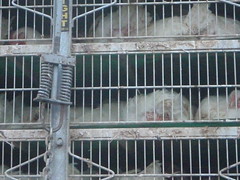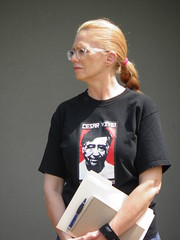Judge rules prison privatization plan unconstitutional Dara Kam wrote for Post on Politics yesterday, Judge Rules Florida Prison Privatization Unconstitutional,
The order doesn’t say Florida can’t privatize prisons, rather that it can’t do it by hiding it in the budget process. But alleged budget savings are the only reason privatization backers are willing to admit to, so that’s no small matter.The privatization of 29 prisons in the southern portion of the state from Manatee County to Indian River County to the Florida Keys should have been mandated in a separate bill and not in proviso language in the budget, as lawmakers did in the must-pass budget approved in May and signed into law by Gov. Rick Scott, Fulford ruled.
“This Court concludes that if it is the will of the Legislature to itself initiate privatization of Florida prisons, as opposed to DOC, the Legislature must do so by general law, rather than ‘using the hidden recesses of the General Appropriations Act,’” Fulford wrote in her order issued Friday morning.
And if prison privatization is such a money-saver, why did the prison companies’ cronies in the statehouse try to do it like this: Continue reading








